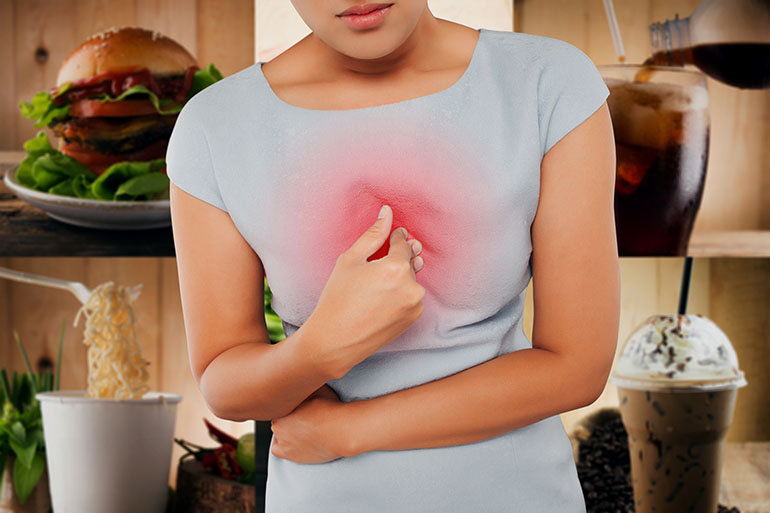Published on: 12/1/2015IST
Acid Reflux: Causes & Cure
The entrance to your stomach is usually closed by a valve called the lower esophageal sphincter (LES). The LES opens when you eat food and closes immediately after. If your stomach produces too much of acid, the acid can back up through the valve and into your esophagus. You can experience a burning, painful sensation in your chest called heartburn. The other symptoms of acid reflux are dyspepsia and regurgitation. If the symptoms occur at least 2 times a week, then you might be suffering from a stomach disease called gastroesophageal refulx disease (GERD). GERD can be caused by genetic abnormalities in the stomach, certain types of medication, and your food choices. A lot of foods lead to the build up of acids in your stomach and prevent the LES from closing properly, which lead to uncomfortable GERD symptoms. Here are a list of foods you should avoid if you suffer from acid reflux.
1. Tomatoes
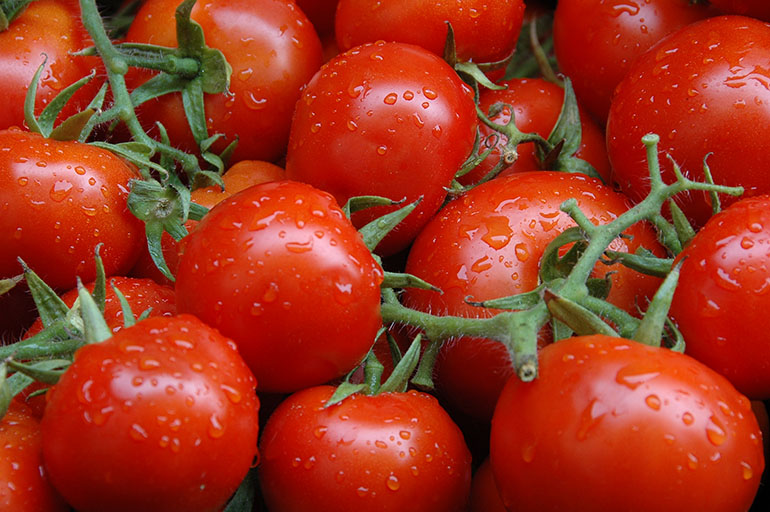
Even though tomatoes are delicious and contain healthy nutrients, you should avoid them if you are prone to acid reflux. Tomatoes contain a high amount of citric acid and malic acid. Consuming them can cause the acid accumulated in your stomach to back up into your esophagus, causing heartburn.
2. Onions
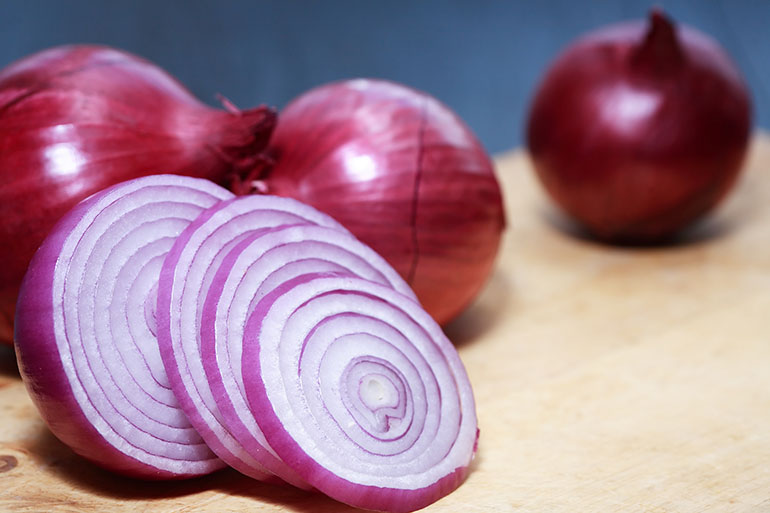
Onions have been known to cause heartburn by relaxing the LES, which keeps the food from flowing back into the esophagus. It also contains some volatile oils that increase gastric secretions in the stomach, causing acidity.
3. Citrus Fruits
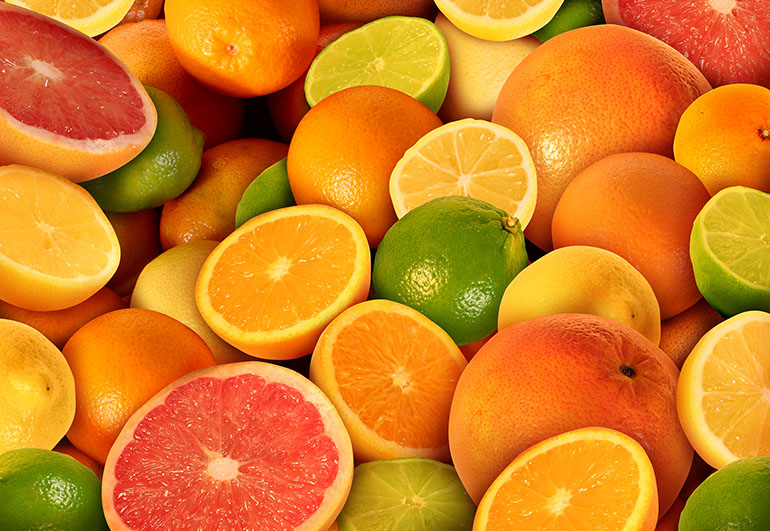
Citrus fruits like lemons, oranges, grapefruits, sweet lime, and tangerine are rich in citric acid. Lemon is one of the most acidic fruits in the world, with a pH almost as low as 2. Consuming citrus fruits when suffering from acid reflux will increase the acidity in your stomach and will further aggravate your condition.
4. Caffeine

Caffeine relaxes the LES, allowing food to go back into your esophagus to cause heartburn. If you suffer from heartburn at night, it is fine to drink a small cup of coffee or tea in the morning, but gulping down caffeine throughout the day causes serious heartburn.
5. Peppermint
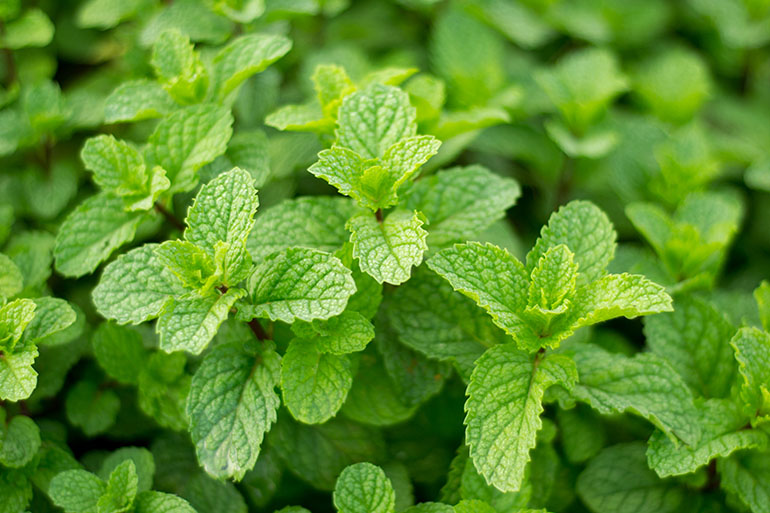
Peppermint has a soothing effect on the stomach by relaxing the stomach muscles. Since it also relaxes the LES, it aggravates the symptoms of acid reflux.
6. Soda
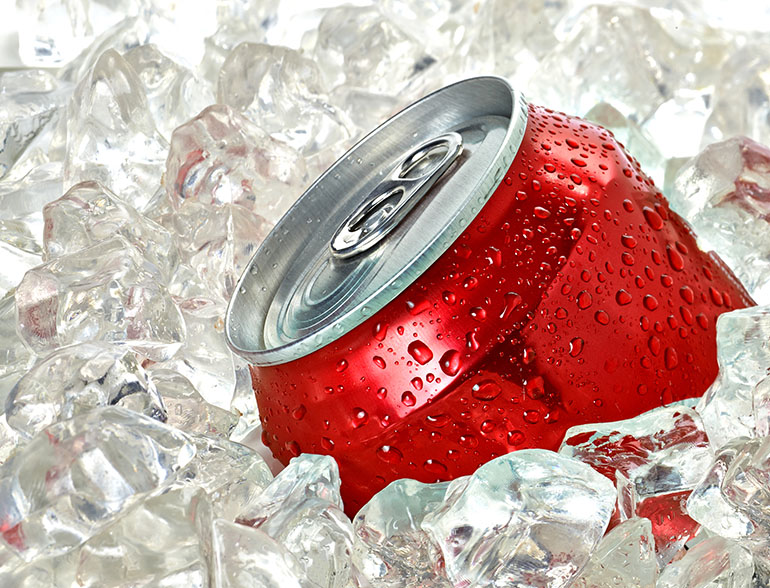
Sodas are acidic in nature due to which they lower the pH of your stomach. Drinking soda also creates a pressure in your stomach which causes the LES to open. This allows your food to easily back up into your esophagus and cause heartburn.
7. Chocolate

Chocolate allows the LES to stay open for a longer period of time that is normally does. This allows your food to seep back into your esophagus and cause chest pain. The caffeine in chocolate is one of the causes for this problem.
8. Fried Foods
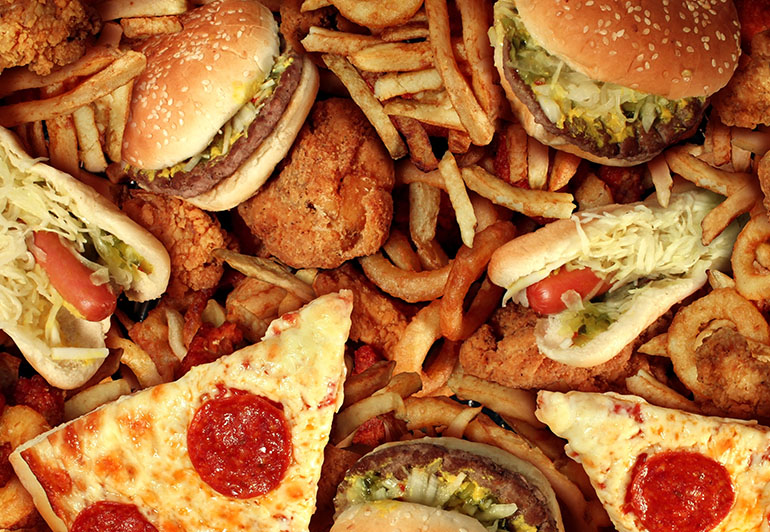
Fried, fatty foods relax the LES, slow down digestion, and stay in your stomach for a long period of time. They can slowly back up into your esophagus and cause that uncomfortable and painful feeling in your chest. Fatty foods also lead to obesity and people who are obese can experience symptoms of heartburn more often than lean people do. Regularly eating a fatty diet leads to long-term heartburn.
9. Alcohol
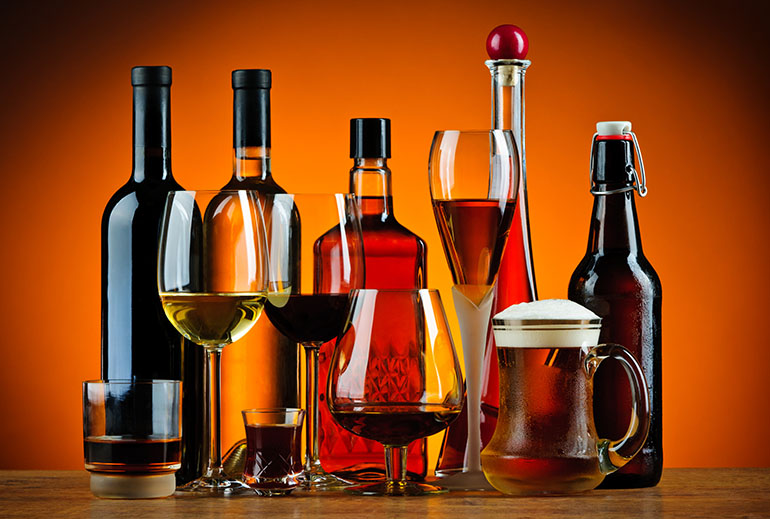
Alcohol is known to have a relaxing effect on those drinking it. It not only relaxes your mind but relaxes the LES as well. Drinking alcohol allows the food to easily back up into your esophagus. It also increases the amount of acid produced in your stomach.
10. Spicy Foods
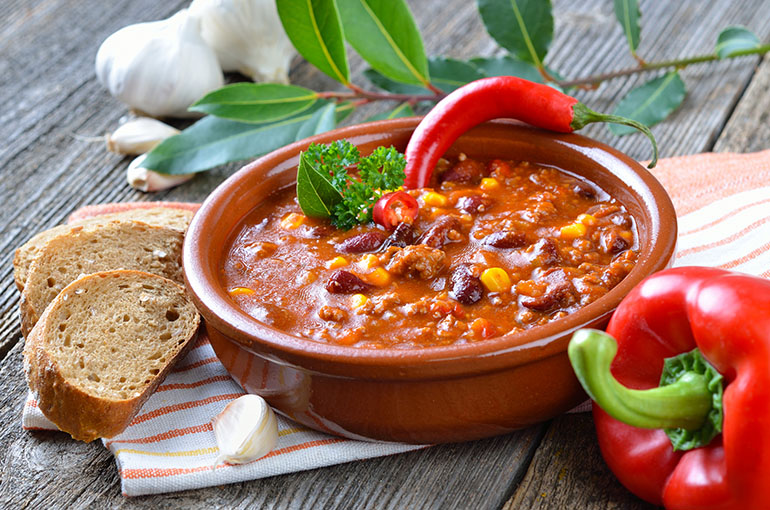
If you regularly consume spicy foods that contain a lot of peppers and hot spices, you should replace them with milder options. The compound capsaicin, that makes peppers hot irritates the inner lining of the esophagus and the stomach, which causes the symptoms of acid reflux.
If your suffer from heartburn and other symptoms of acid reflux for long periods of time, your should consult a doctor. Accumulation of acids in the esophagus for an extended period of time might lead to cancer. You should increase your consumption of sour foods, which cause you to produce more saliva. Since saliva is alkaline in nature, it can reduce the acidity of you stomach and provide some relief.
Acid reflux and its painful companion heartburn are on the rise as millions of Americans say they experience acid reflux at least once a week. When acid reflux occurs more than once a week, your doctor may diagnosis you with GERD (Gastroesophael reflux disease). While some causes of GERD are based on one’s lifestyle choices (eating a diet high in fat or acidic foods, overeating and emotional stress), other factors that can cause GERD include genetic abnormalities in the stomach and/or esophagus, or certain medications.
How does acid reflux occur?
After food enters your mouth you chew and then swallow. The food travels down your throat, into your esophagus, through the lower esophageal sphincter and then into your stomach where it mixes with acid and bile. When properly functioning, the lower esophageal sphincter only opens in one direction (into the stomach). Unfortunately, the body does not always function the way it should and sometimes acid and bile from the stomach can go up through the sphincter into the esophagus. This is known as acid reflux. Sometimes acid reflux is painless, other times it is not. The painful feeling of the acid in our esophagus is called heartburn.
How to detect GERD?
Only your doctor can diagnosis you with GERD and if you are experiencing acid reflux and/or heartburn frequently you should go see him or her as soon as you can. Some symptoms of GERD include heartburn, chest pain, nausea after eating, feeling too full after meals, coughing, bitter taste in mouth,asthma, vomiting and regurgitation. Because of the frequency of the acid reflux, the lining of the esophagus can also become eroded and cancer of the esophagus can become a concern.
Treatment options: Western vs. Eastern
The western treatment of heartburn includes acid blockers and antacids such as Prilosec, Prevacid or Tums. These drugs are not cures and only mask the symptoms without addressing the cause. They can also cause unwanted side effects including abdominal pain, nausea, diarrhea and headaches. Symptoms can even become worse after discontinued use.
In Traditional Chinese medicine, acid reflux is related to a dysfunction in the stomach meridian. The stomach meridian begins around the eyes and travels downward through the heart and stomach and finishes at the second toe. When the stomach qi starts traveling upward, (as it does during acid reflux) there is a pathology in the stomach meridian. Acupuncture works to help direct stomach qi back downward and correct the pathology. Heartburn can also be related to the heart meridian. If the heart meridian is involved, the acid reflux will more likely be caused by stress or have an emotional component. Traditional Chinese Medicine and Acupuncture do not have any negative side effects and can reduce your heartburn in just one treatment.
How can I prevent/treat heartburn?
-Try using Probiotics: Many of my patients have had great success in treating their heartburn with a teaspoon of liquid probiotics everyday.
-Don’t eat less than two hours before bed
-Skip dessert and coffee
-Avoid strenuous activity before bed
-Avoid night caps
-Lose weight for excess weight adds pressure to the valve
-Quit Smoking as it can weaken valve between esophagus and stomach- nicotine weakens sphincter
-Avoid mint after dinner. Mints may relax valve at top of stomach
-Keep a food diary. This can help you realize your heartburn food triggers
-Wear loose fitting clothing
-Try chewing gum. It increases saliva and swallowing, washing acid out of esophagus
-Avoid caffeine, garlic, onions, peppermint, alcohol, chocolate, tomatoes, fried or fatty foods.
Try Acupressure – Having a flare up between treatments? Ask your acupuncturist to show you these two important points and massage for 5 minutes to help reduce heartburn immediately!
12/6/2017 | | Permalink

